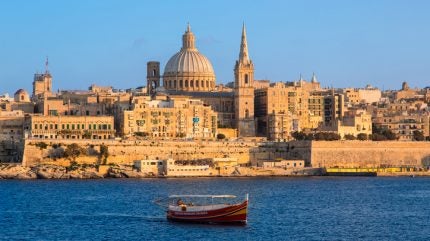
The European Court of Justice has banned Malta’s golden visa program, where rich foreigners could gain citizenship (and therefore be part of the European Union) through making major investments. There are similar programs in other European countries, although these have faced pushback from the Commission for years.
The island nation’s passport scheme has drawn scrutiny in the past few weeks for allowing sanctioned individuals to circumvent travel bans.

Discover B2B Marketing That Performs
Combine business intelligence and editorial excellence to reach engaged professionals across 36 leading media platforms.
The court said a “Member state cannot grant its nationality– and indeed European citizenship– in exchange for predetermined payments or investments, as this essentially amounts to rendering the acquisition of nationality a mere commercial transaction.”
Malta’s program allowed foreigners to acquire citizenship through a one-off investment of at least €600,000 ($683,578), the purchase or rental of a property, a €10,000 ($11,393) charitable donation, and through living in Malta for three years. There have been a handful of similar programs in the EU, such as in Portugal, Spain, Cyprus and Italy. However, some of these have now terminated as they have been perceived as unfair and as putting pressure on stressed housing markets.
Having a passport from an EU country has major benefits, such as the ability to travel and work freely in the bloc.
Leading up to the court’s ruling, Russian businessman Albert Avdolayan, who’d acquired Maltese citizenship through the visa program, was sanctioned by the EU for his ties to the Russia-Ukraine war. Avdolayan will be able to circumvent some of the travel restrictions thanks to his Maltese passport.

US Tariffs are shifting - will you react or anticipate?
Don’t let policy changes catch you off guard. Stay proactive with real-time data and expert analysis.
By GlobalDataThere have been at least seven other individuals who acquired the Maltese passport through the scheme and were later hit with sanctions over the war in Ukraine.
The European Commission has strongly condemned the pay-for-passport programs for creating security and money laundering vulnerabilities.
The news comes as a similar program in the US gains traction.
In February, US President Donald Trump announced he’d launch a special immigration visa, a ‘gold card’, for foreign individuals who invest $5m in the US. Elon Musk’s Department of Government Efficiency (whose legitimacy to conduct such government operations has been heavily contested) is leading the creation of the program. US Secretary of Commerce Howard Lutnick claimed they sold 1,000 of these visas in one day in March.





